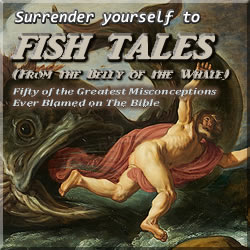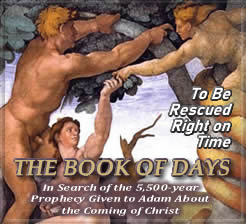Foreign Affairs
The Global Consequences
One day after class, I have to say, my professor never looked so grim. Then he asked me, point-blank: “Aren’t you ever worried that your work as a political science major is incompatible with the tenants of a genuine Christian faith?” Leaning back in his oversized chair, he exhaled deeply. “And when I say political science,” he continued, “I’m not thinking just in terms of American politics as it relates to domestic affairs. No… You see, the thing that has invaded my thinking, intruded into my thoughts… It’s not so much about our political landscape. What I’m thinking about has more to do with geopolitics. The question is… How do we—America, I mean—how do we fit in? I mean, what is our role in relationship with the rest of the world in general?” And when he saw the puzzled look that had materialized on my face, he chuckled. “Oh, dear,” he continued, “I’m sorry for coming off so glum. It’s just that my wife and I were having another one of our … discussions—you know the kind.”
I nodded affirmatively.
“Well, anyway,” he proceeded. “As usual, she was challenging me from the perspective of her faith—Catholic, you see—and we were discussing the upheaval in the Middle East, and she was asking me what I thought about our diplomatic role there.”
Trying to engage with the conversation in a meaningful way, I interjected. “Maybe if you could provide me with a specific situation, I could better answer your question.”
“Of course, of course,” he said, with downcast eyes. Clearly, he was wrestling with an inner turmoil that was making it difficult for him to choose the right words, something I’d never seen before in the professor. “There’s a humanitarian crisis there, you see,” he continued, “a crisis due to recent military strikes by the various parties involved. Apparently this has triggered a sizable exodus of refugees seeking asylum in the U.S. The situation has become so dire the State Department is suggesting we temporarily suspend the normal procedure of vetting these asylum seekers; and it’s creating quite a stir in Washington.”
“And you say your wife is somehow involved in this,” I interjected again. “How so?”
“Well, yes. Somehow, she got herself appointed to some subcommittee that’s responsible for inputting their advice on the ruling in the vetting process of these refugees.”
“And I suppose your wife is in favor of allowing them into our country without the normal vetting process. Is that why you’re so upset?”
With that, the professor looked up at me in shock. “But that’s the thing, you know. That’s what I thought she was going to say. But she completely threw me for a loop.”
“A loop? What do you mean a loop?”
Story Continues Below
To hear Kent and Zen continue their discussion concerning the implications of the 5,500-year chronology from Adam to Christ as it pertains to the faithfulness of God, CLICK BELOW.
Story Continues From Above
“Suddenly, my wife—the good and saintly Christian—is more concerned about Americans and America’s national security. According to her, without proper vetting, these refugees pose a potential threat. According to her, many of these refugees come from countries that do not wish us well because of America’s ‘meddling,’ as they see it, in their private dispute.” The old man paused, as if to allow me more time to digest his words, then he blurted, “Can you believe it? The good wife?”
“Oh, I see,” was all I could think of at that moment.
“I have to tell you, I could have never seen this coming, not from someone like my wife.”
“You mean someone so committed to aiding the poor and needy?”
“Yes. That’s why I was wondering what you think, considering your outspoken position on Christianity.”
“But, sir, I’d like to know something else before I offer my take on this situation.”
“Of course. What is it?”
“What is your opinion about the decision to bypass normal immigration procedure? Does it violate your moral sensibilities?”
“But that’s just it. I don’t have anything to say about it, one way or the other. What I think is meaningless. What I’m concerned with—the thing that troubles me the most— is the complete lack of consistency on the part of my wife.”
“How’s that?”
“Consistency, young man, consistency. While I’m certainly no Christian, I do at least subscribe to being consistent about my agnosticism. Otherwise I’d consider myself a hypocrite. Wouldn’t you agree?”
“Of course. And so you’re having a hard time understanding your wife’s position because you see it as being inconsistent with her Christian faith.”
“Naturally. I mean, don’t you see the same thing? Are you not expected to live by the so-called ‘Golden Rule’? When faced with a moral dilemma like this, aren’t you supposed to put away your own personal needs, extend open arms? Even when dealing with your enemies, you’re supposed to turn the other cheek, right?”
“You mean you believe loving your enemies should be applied not just in our personal lives but also in the context of global relations. Is that it?”
“Like I said, I don’t have any opinion regarding the idea of ‘loving your enemies.’ I personally think it’s a lot of sentimental hogwash.”
“Then what’s the problem here?”
“The problem, as I see it, is: If you’re going to be a Christian and hold to Christian precepts, then by all means, be consistent … or else…” His words trailed off, as though he would regret saying what he was about to say.
“Or else what?” I asked, unable to help myself.
“Or else, quite the game altogether.”
And there it was again—my strange admiration for a man who I completely disagreed with when it came to many of the ideas I held most dear. Yet despite his agnosticism, here was a man ruled by principles, even as he struggled to understand his wife’s view that challenged his own code of ethics. Besides that, I also felt an overwhelming need to avoid offering a pat answer to his question. So as always, before I did commit to an answer, I determined to further investigate both sides of this complex issue to better understand the truth of this important matter.
“Guard jealously the public liberty. Suspect everyone who approaches that jewel. Unfortunately, nothing will preserve it but downright force. Whenever you give up that force, you are inevitably ruined.”
Patrick Henry






